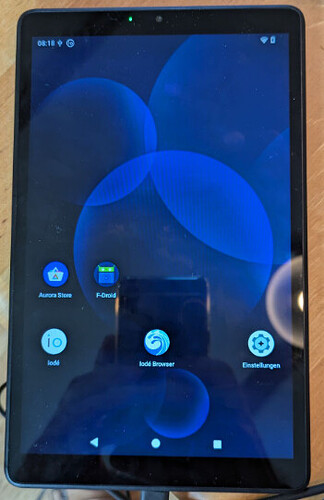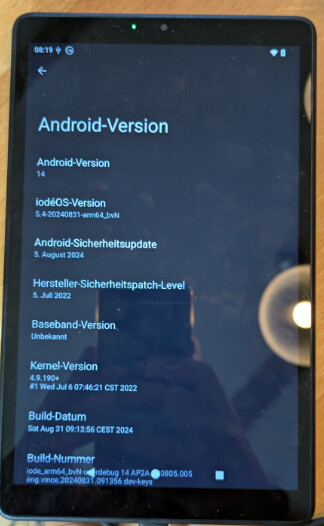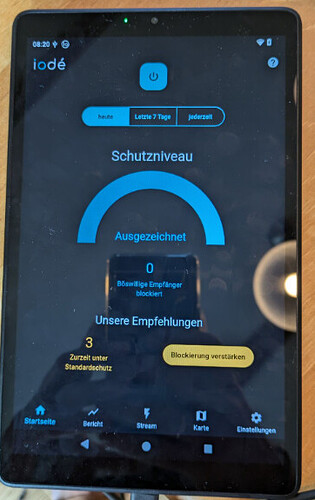Hi all,
We are very happy to announce you our fresh new support for a GSI! 
You will find it here: gsi · master · ota / release · GitLab
Installation instructions will be available here soon.
For those who will test out our GSI, feel free to mark down your feedbacks in the table below! That will be very useful for the community.
Please order the table alphabetically from brands and models.
–FR–
Bonjour à tous,
Nous sommes très heureux de vous annoncer notre tout nouveau support pour une GSI ! 
Vous la trouverez ici : gsi · master · ota / release · GitLab
Les instructions d’installation seront disponibles ici prochainement.
Pour ceux qui testeront notre GSI, n’hésitez pas à noter vos commentaires dans le tableau ci-dessous ! Cela sera très utile pour la communauté.
Veuillez classer le tableau par ordre alphabétique des marques et des modèles.
–DE–
Hallo zusammen,
wir freuen uns sehr, unsere neue Unterstützung für ein GSI ankündigen zu können! 
Ihr findet sie hier: gsi · master · ota / release · GitLab
Die Installationsanleitung wird bald hier verfügbar sein.
Diejenigen, die unser GSI testen, können gerne ihre Rückmeldungen in der Tabelle unten eintragen! Das wird für die Community sehr nützlich sein.
Bitte ordnet die Tabelle alphabetisch nach Marken und Modellen.
| Brand |
Model |
Compatibility |
Comment / dysfunction |
E |
| Blackview |
BV4900 Pro |
Booted and running |
see post #171 |
|
| Blackview |
Mega 2 |
Bootet and running |
Minor issue: Double tap to wake up not available; PHH updater Sees update but “Download and install” crashes constantly; installation instructions: #175 |
|
| Fairphone |
FP4 |
Booted and running |
prior to flashing, delete product partitions: ‘fastboot delete-logical-partition product_a’ and ‘fastboot delete-logical-partition product_b’ |
|
| Gigaset |
GS4 |
Booted and running |
see post #38 |
|
| IIIF150 |
B1 Pro |
Booted via DSU Sideloader and running (Dual-Boot) |
see post #66 |
|
| Lenovo |
TB-850SF |
Booted and running. |
see post #15 |
|
| Lenovo |
ZUK Z2 Pro (Z2121) [z2_row] |
Booted and running |
(on Custom Kernel) see post #22 |
|
| Redmi |
Note 8T |
Booted and running |
see post #41 |
|
| Samsung |
Galaxy S21 FE 5G (2022) |
Booted via DSU Sideloader and running (Dual-Boot) |
see post #47 |
|
| Samsung |
Galaxy Tab A7 (2020) |
Booted via DSU Sideloader and running (Dual-Boot) |
see post #70 |
|
| Samsung |
Galaxy Tab Active3 |
Booted via DSU Sideloader and running (Dual-Boot) |
see post #45 |
|
| Samsung |
Galaxy Tab S7 FE SM-T733 | gtsfewifi |
Booted and running |
twrp-3.7.1_12-2-gts7fewifi GitHub - Bush-cat/android_device_samsung_gts7fewifi-twrp: Samsung Galaxy Tab S7 FE WiFi (T733) (gts7fewifi) TWRP Device Tree. |
|
| Shift |
phone 8.0 |
running; prior to flashing, delete product partitions; NFC & Fingerprint don’t work |
see SHIFTphone 8 - Frage / Question - Iode GSI Installieren, ADB & Fastboot erkennt das Shift 8 nur teilweise. | Seite 2 | SHIFTPHONES |
|
| Shift |
phone 8.1 |
running; prior to flashing, delete product partitions; NFC & Fingerprint don’t work |
see SHIFTphone 8 - Frage / Question - Iode GSI Installieren, ADB & Fastboot erkennt das Shift 8 nur teilweise. | Seite 2 | SHIFTPHONES |
|
| Sony |
Xperia 5 V |
Booted and running. |
See post #6, below |
|
| Telekom (Germany) |
T Phone 5G (Jaguar) |
Booted and running |
see post #30 |
|
| Telekom (Germany) |
T Tablet 5G (Hubbs) |
Booted and running |
see post #49 |
|
| UMIDIGI |
A5 Pro [breeze] |
stuck in Bootloop OEM logo |
see post #41 and #50 |
|
| Unihertz |
Atom L |
Booted and running |
see post #43 |
|
| ZTE Nubia |
Z17 [NX365J] |
Booted and running |
(on Custom Kernel) see post #22 |
|
| Essential Phone |
PH-1 (mata) |
Stuck in bootloop iodé logo |
|
|
| Unihertz |
Titan (EMMC and UFS) |
booted and running |
with fastboot updated 5.10 to 5.11 |
|
| Xiaomi |
Xiaomi 12 Pro |
Booted an running |
see post #164 |
|
1 Like
What is the GSI based on?
QPR2?
Patches from phhusson?
AOSP or LOS TrebleDroid or Andy Yan?
Like all GSIs after February 27th, I can’t get this one to work. Bootloop
Can I ask what the intention behind the development of a GSI was?
Is it a pure proof of concept?
Should it receive regular updates like the regular OS? At the same speed as the betas or rather as slowly as the stables?
Is the aim to reach a larger user base? Market penetration?
Will regular, potentially new devices be neglected?
Will the iodeOS suffer as a result? In terms of the speed of updates and new features?
I mean, the work that already rests on very few shoulders will not be reduced as a result.
What is the plan? What does the future look like?
I have been observing the GSI community for a while. I also use a GSI on an old tablet.
But I also see that it requires a lot of support.
A GSI is not a savior. New challenges arise once it is known in the community. Will it be possible to overcome this in the end?
I don’t want to paint a bleak picture, but I am worried. Is this the right way?
1 Like
The GSI is based on Andy Yan work. Modifications are minimal and will be published a bit later. Maintenance will be easy, as long as the original work continues; and the GSI will thus receive regular updates. The impact on regular devices production will be negligible.
We don’t actually intend to give a lot of support to the GSI, nor make original development on it. This can more be viewed as a gift to the community, and support can be found in many places (including here, thanks to active users). Of course, we hope to attract a little bit more attention, and maybe gain new users on regular devices.
This is for the starting point, nothing being set in stone.
5 Likes
OK, thanks for clarifying…
Will you announce it here?:
iodeGSI is running well on Sony Xperia 5 V.
Installation for this device is to simply flash the install zip* in fastbootd, enter recovery, factory reset and boot system.
*I renamed it to have .img at the end but I’ve since learnt that it’s not necessary; the zip flashes just the same.
Like other GSI’s one has to download the ims APK from the treble settings and reboot in order to get calls up and running.
Vowifi is provisioned and can be turned on but as with other gsi’s, it does not work.
Another tweak seemed to be required to get messages working: turn on aeroplane mode, reboot, wait 30 secs and turn off aeroplane mode. Not required after subsequent reboots.
This is great addition to the iode roster! People can try it out before commiting to a supported device. Thanks to Vincent and the team. 
2 Likes
A wish that has been cherished for years has now come true: iodéOS 5.4 GSI.
But my first test run on one was not successful and ended in a boot loop. Test device: Gigaset GS4, Stock Android 11.0, Kernel version 4.14.186
In contrast, the installations of VoltageOS GSI v3.6 microG and @ponces AOSP v2024.08.16 on the same Gigaset GS4 were completely different and successful.
An immediate, generally understandable explanation can only be beneficial for iodé.tech.
Hi,
what the different to these both GSI’s???
The file from iode-5.4-20240827-gsi.zip is 1.37GB and the file from iode-5.4-20240831-gsi.zip is 2.97GB big 
Another thing, what is LFS 
BTW, I have add iodéOS GSI to the GSI list 
Can you check pls, it’s all right!!!
1 Like
There has been some trouble with the files. Please check that you tried the 20240831 version, which should be compatible with more devices.
Same answer as above: some trouble with zip compression, filenames, … It is fixed.
Git LFS: large file storage for git (https://git-lfs.com/).
Thanks for adding iodé GSI to the list!
1 Like
iode-5.4-20240831-gsi.zip (fix 20240902) and …
Failure message
fastboot flash system iode-5.4-20240831-gsi.zip
Invalid sparse file format at header magic
Resizing ‘system’ OKAY [ 0.003s]
error: write_sparse_skip_chunk: don’t care size 2922811592 is not a multiple of the block size 4096
error: write_sparse_skip_chunk: don’t care size 2654376136 is not a multiple of the block size 4096
error: write_sparse_skip_chunk: don’t care size 2385940680 is not a multiple of the block size 4096
error: write_sparse_skip_chunk: don’t care size 2117505224 is not a multiple of the block size 4096
error: write_sparse_skip_chunk: don’t care size 1849069768 is not a multiple of the block size 4096
error: write_sparse_skip_chunk: don’t care size 1580634312 is not a multiple of the block size 4096
error: write_sparse_skip_chunk: don’t care size 1312198856 is not a multiple of the block size 4096
error: write_sparse_skip_chunk: don’t care size 1043763400 is not a multiple of the block size 4096
error: write_sparse_skip_chunk: don’t care size 775327944 is not a multiple of the block size 4096
error: write_sparse_skip_chunk: don’t care size 506892488 is not a multiple of the block size 4096
error: write_sparse_skip_chunk: don’t care size 238457032 is not a multiple of the block size 4096
Sending sparse ‘system’ 1/12 (262084 KB) error: write_sparse_skip_chunk: don’t care size 2922811592 is not a multiple of the block size 4096
error: write_sparse_skip_chunk: don’t care size 2922811592 is not a multiple of the block size 4096
OKAY [ 7.368s]
Writing ‘system’ FAILED (remote: ‘No such file or directory’)
fastboot: error: Command failed
… the installation still failed again.
Please extract the img file from ZIP archive.
What was not possible with the first version of iode-5.4-20240831-gsi.zip, I’ve now of course done with the fixed version, because this is the usual procedure. I’m not a GSI beginner.
The first line of the error messages Invalid sparse file format at header magic is not displayed during the successful installation of VoltageOS 3.6 microG GSI, which can be repeated at any time.
could flash 20240827 but had bootloops
could not flash 20240831 (following error):
mkl@mkl-solus ~/Downloads/GSI $ fastboot flash system iode-5.4-20240831-gsi.img
error: write_sparse_skip_chunk: don't care size 3057021128 is not a multiple of the block size 4096
Sending sparse 'system' 1/24 (131048 KB) error: write_sparse_skip_chunk: don't care size 3057021128 is not a multiple of the block size 4096
error: write_sparse_skip_chunk: don't care size 3057021128 is not a multiple of the block size 4096
OKAY [ 2.888s]
Writing 'system' FAILED (remote: 'sparse chunk size is too big.')
fastboot: error: Command failed
Could flash it then with following solution, see next post →
I’ve unpacked now the
iode-5.4-20240831-gsi.zip (1.4 GiB) to iode-5.4-20240831-gsi.img (3.0 GiB)
and then again this
iode-5.4-20240831-gsi.img to iode-5.4-20240831-gsi.zip (3.0GiB)
This last one, I could flash
mkl@mkl-solus ~/Downloads/GSI/iode $ fastboot flash system iode-5.4-20240831-gsi.zip
Sending sparse 'system' 1/24 (131060 KB) OKAY [ 2.887s]
Writing 'system' OKAY [ 1.903s]
Sending sparse 'system' 2/24 (131056 KB) OKAY [ 2.946s]
Writing 'system' OKAY [ 1.881s]
Sending sparse 'system' 3/24 (131060 KB) OKAY [ 2.898s]
Writing 'system' OKAY [ 1.907s]
Sending sparse 'system' 4/24 (131056 KB) OKAY [ 2.891s]
Writing 'system' OKAY [ 1.887s]
Sending sparse 'system' 5/24 (131060 KB) OKAY [ 2.833s]
Writing 'system' OKAY [ 1.904s]
Sending sparse 'system' 6/24 (131036 KB) OKAY [ 2.894s]
Writing 'system' OKAY [ 1.931s]
Sending sparse 'system' 7/24 (131068 KB) OKAY [ 2.900s]
Writing 'system' OKAY [ 1.883s]
Sending sparse 'system' 8/24 (131060 KB) OKAY [ 2.843s]
Writing 'system' OKAY [ 1.877s]
Sending sparse 'system' 9/24 (131064 KB) OKAY [ 2.892s]
Writing 'system' OKAY [ 1.912s]
Sending sparse 'system' 10/24 (131056 KB) OKAY [ 2.921s]
Writing 'system' OKAY [ 1.873s]
Sending sparse 'system' 11/24 (131064 KB) OKAY [ 2.963s]
Writing 'system' OKAY [ 1.891s]
Sending sparse 'system' 12/24 (131060 KB) OKAY [ 2.942s]
Writing 'system' OKAY [ 1.895s]
Sending sparse 'system' 13/24 (131060 KB) OKAY [ 2.917s]
Writing 'system' OKAY [ 1.885s]
Sending sparse 'system' 14/24 (131064 KB) OKAY [ 2.888s]
Writing 'system' OKAY [ 1.882s]
Sending sparse 'system' 15/24 (131064 KB) OKAY [ 2.962s]
Writing 'system' OKAY [ 1.873s]
Sending sparse 'system' 16/24 (131064 KB) OKAY [ 2.841s]
Writing 'system' OKAY [ 1.883s]
Sending sparse 'system' 17/24 (131020 KB) OKAY [ 2.908s]
Writing 'system' OKAY [ 1.974s]
Sending sparse 'system' 18/24 (131056 KB) OKAY [ 2.874s]
Writing 'system' OKAY [ 1.904s]
Sending sparse 'system' 19/24 (131060 KB) OKAY [ 2.866s]
Writing 'system' OKAY [ 1.892s]
Sending sparse 'system' 20/24 (131064 KB) OKAY [ 2.884s]
Writing 'system' OKAY [ 1.872s]
Sending sparse 'system' 21/24 (131064 KB) OKAY [ 2.808s]
Writing 'system' OKAY [ 1.885s]
Sending sparse 'system' 22/24 (131064 KB) OKAY [ 2.797s]
Writing 'system' OKAY [ 1.871s]
Sending sparse 'system' 23/24 (131068 KB) OKAY [ 2.872s]
Writing 'system' OKAY [ 1.890s]
Sending sparse 'system' 24/24 (68152 KB) OKAY [ 1.523s]
Writing 'system' OKAY [ 1.519s]
Finished. Total time: 114.249s
mkl@mkl-solus ~/Downloads/GSI/iode $
Could boot then my Lenovo-Tab-M8-HD
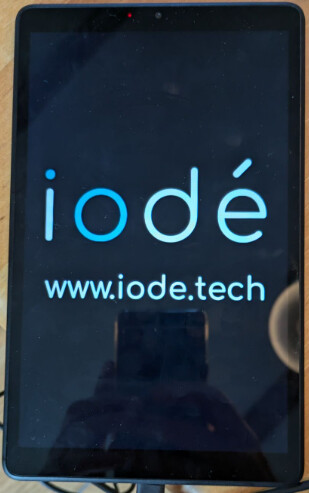
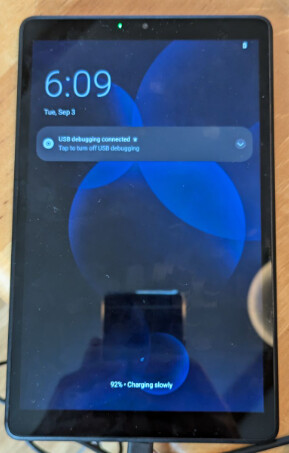
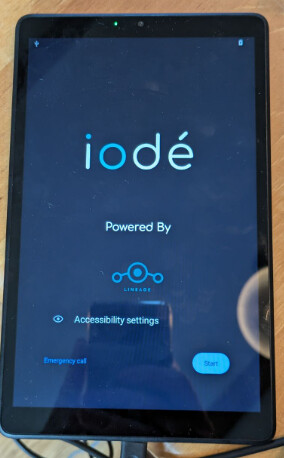
1 Like
Great!
But there’s no need to rename the .img to .zip
Great!
@AlphaElwedritsch, I’ve a Lenovo Tab M10 Plus (2023) TB-128FU [SoC Qualcomm SMD 680], but cannot unlock the bootloader because Lenovo does not send me an unlock code, although I have already requested it twice. Do you have a tip for me on how to get the unlock code?
I think it would be better to compress the files with .xz like the other GSI maintainers do.
I didn’t rename it
After first unzip
Automatically renamed from .zip to .img
After second unzip
Automatically renamed from .img to .zip
I know that’s strange, but the truth
![]()
![]()
![]()



